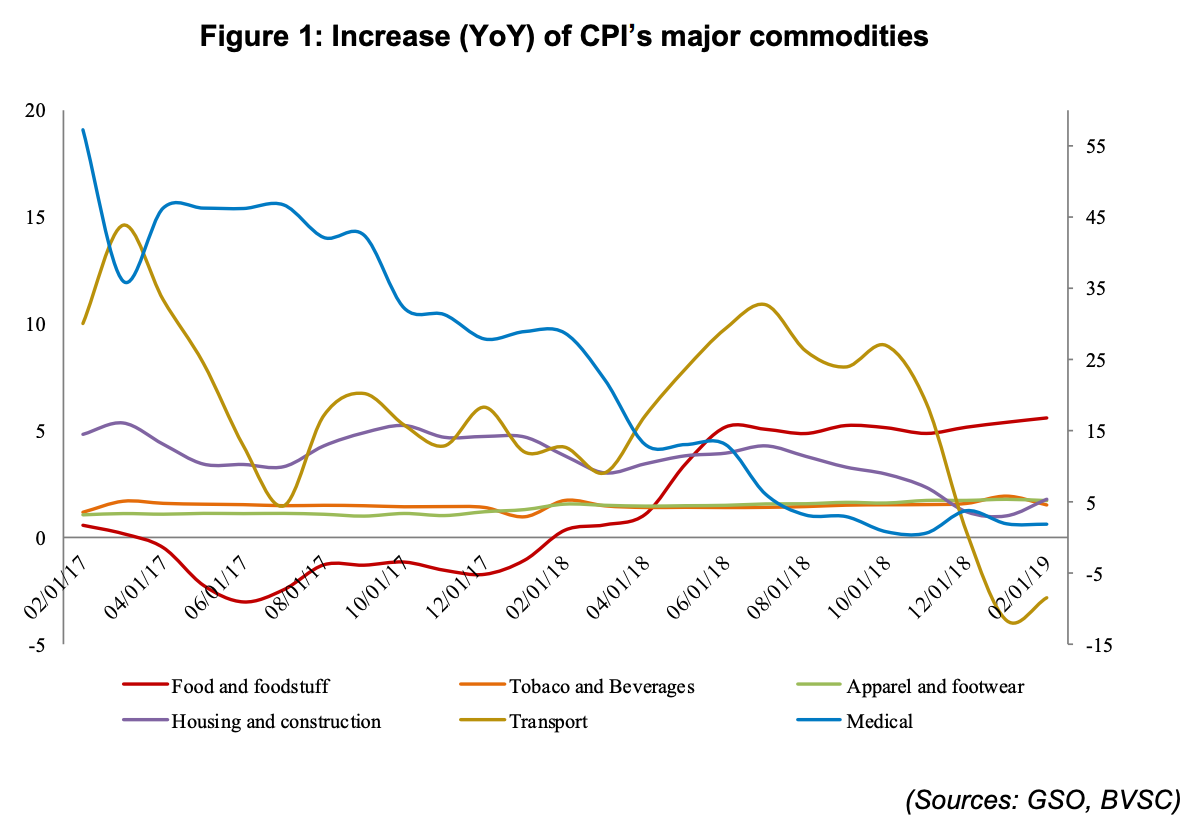Vietnam’s inflation in 2019 predicted at 3.5%
The consumer price index (CPI), a gauge of inflation, rose 0.1% and 0.8% month-on-month in January and February, respectively. The strong increase in February came from the increasing goods demand during Tet Holiday, therefore, should not be worrisome, stated BVSC in its report.
Overall the CPI stood at 2.64% year-on-year by the end of Feb 2019, maintaining a downtrend and significantly decreasing from the peak of 4.67% recorded last May. This cooling down of the CPI year-on-year derived mainly from transport cost (down 3% year-on-year) while healthcare gained only 1.8% year-on-year.
Notably, electricity price has officially increased by an average of 8.36%, starting March 20, 2019. With a 3.5% proportion in the CPI basket, the 8.36% increase in average electricity price is expected to raise 0.3 percentage points of the overall CPI, the report stated.
The price did not rise until March 20, therefore, the above 0.3% increase will be partly allocated to March CPI figures. Besides, after the strong hike in February, prices of essential consumer goods such as food and foodstuff are likely to cool down in March, which is commonly seen in recent years. Therefore, it is expected that March CPI will increase slightly by 0.1-0.3%.
Since 2010, the average power price has increased nine times with the biggest hike of 15.3% in 2011.

Since 2013, power price raises have occurred less frequently with lower amplitude (5-9%). Observably, in years of significant CPI rise with power price hikes (2010-2011), inflation also derived from many other factors, including a major increase in monetary supply.
BVSC predicted, at this moment, economic supply-demand factors are not posing as many risks to inflation as 2011’s power hikes. Therefore, this hike in power price is expected to have minimal impacts on consumer prices.
The world oil price has increased since the beginning of 2019. However, thanks to the Ministry of Finance and Ministry of Industry and Trade’s inter-ministerial policy of utilizing oil price stabilization fund instead of raising retail price, domestic petroleum price has not changed much.

According to BVSC’s estimation, in the base scenario, if Brent oil prices continue to rise steadily and close at US$70/barrel by the end of this year, Vietnam’s average inflation in 2019 will be at 3.53%.
In the Brent oil scenario at US$65/barrel and US$80/barrel, Vietnam’s average inflation will settle at 3.33% and 3.76%, respectively, stated the report.


 Thailand
Thailand




